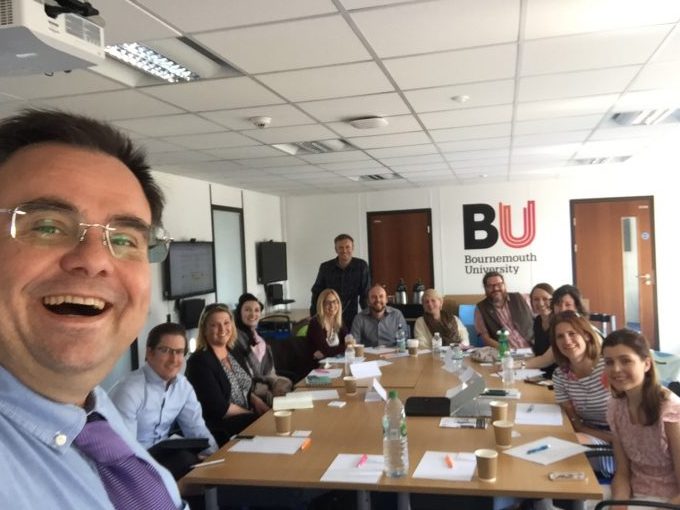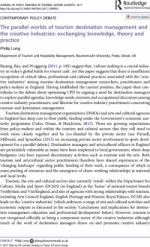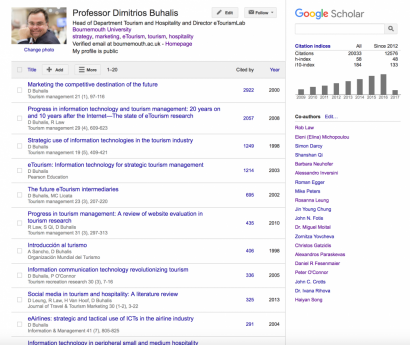International Tourism and Hospitality Conference The Visitor Economy: Strategies and Innovations
Bournemouth University 4-6 September 2017
http://www.bournemouth.ac.uk/visitor-economy Register on https://thevisitorseconomy.eventbrite.com
Conference topics
The visitor economy includes all activities which contribute to visitors experiences. At the core are the components of the tourism product, such as accommodation, food, restaurants, transport and attractions. The concept, however, is much broader as the economy caters for the needs of all visitors, not just tourists. It embraces all activities, infrastructure and services provided to make each visitor’s experience possible. To create a successful visitor economy, it is necessary to manage each individual component of the economy efficiently with a focus on the needs of visitors. These strategies and innovations are used to build resilience into destinations and businesses to improve their international competitiveness. The themes of this conference will include, but are not limited to:
- Animals & tourism
- Coastal tourism Creative economy
- Crisis & disaster management
- Destination branding
- Economics of tourism & hospitality
- Entrepreneurship
- Food, nutrition & wellbeing
- Food & beverages
- Forecasting Hospitality management ICT for development
- ICT & social media
- Marketing Smart tourism Sports tourism
- Special events Sustainability
- The visitor economy & peace
- The visitors economy: strategies & innovations (in Spanish)
- The visitor economy in the Mediterranean
- Tourism and hospitality education
- Tourism experience & co-creation
- Tourism & poverty alleviation
- Tourism planning & innovation
- Transportation issues
- Work & labour in tourism & hospitality
Please submit email abstracts by 26 May to: DepTHconference2017@bournemouth.ac.uk
The conference brings together leading academics and industry researchers to exchange and share their experiences, knowledge and ideas on all aspects of the visitor economy.
Keynotes include
Dr Igor Calzada Oxford University UK
Professor Carlos Costa University of Aveiro Portugal
Professor Alan Fyall University of Central Florida USA
Professor Maria Gravari-Barbas Sorbonne University France
Richard Lewis International hospitality executive, Dubai
Dr Sarote Phornprapha Dusit Thani College, Thailand
Professor Mariana Sigala University of South Australia Business School Australia
Timescale
Abstract submission: 26 May
Acceptance: 30 June 2017
Deadline for registration: 18 Aug
Email abstracts to: DepTHconference2017@bournemouth.ac.uk
Conference fees
Early Bird Delegate: £345 (by 14 July)
Early Bird Student: £190 (by 14 July)
Delegate fee : £475
Student fee: £240
Deadline to register: 27 August 2017
Social programme
We are committed that our delegates will have an incredible time in Bournemouth. An extensive social programme will enable all delegates to network with keynote speakers, journal editors and leading authors in the field as well as having good fun. You will have the opportunity to work and party.
Indicative social agenda
Thursday 31 August Sunday 3 September- Bournemouth Air Festival
Sunday 3 September – 18:00 – Informal get together at a British Pub
Monday 4 September – Welcome salsa reception and networking
Tuesday 5 September – Conference WHITE dinner, party and awards
Wednesday 6 September 2017 After conference tours and dinner
BU Tourism and Hospitality Conference Bournemouth University, 4-6th September 2017
Visitor Economy: Strategies and Innovations
http://www.bournemouth.ac.uk/visitor-economy Register on




